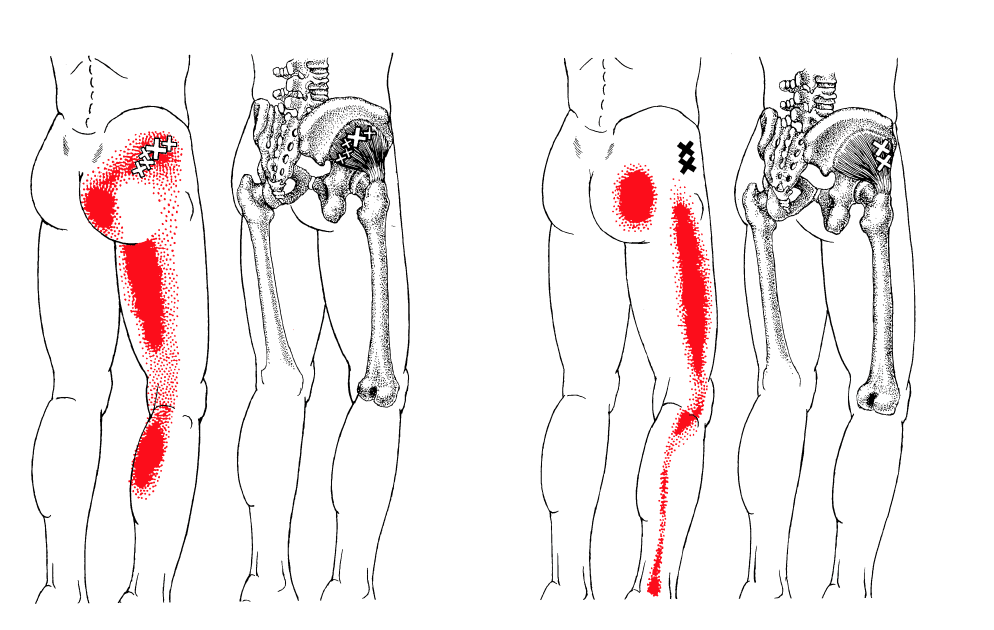
Are you experiencing pain or discomfort in your hips, lower back, or buttocks? The culprit might be the gluteus medius trigger points. These small, sensitive knots in the gluteus medius muscle can cause a range of issues, from localized pain to referred pain in other areas of the body. In this article, we will delve into the world of gluteus medius trigger points, exploring their causes, symptoms, and most importantly, how to effectively manage and alleviate the discomfort they cause.
Table of Contents
Introduction to Gluteus Medius Trigger Points
The gluteus medius is one of the three major muscles that make up the gluteal region. Located on the outer surface of the pelvis, it plays a crucial role in stabilizing the pelvis during activities like walking, running, and standing. However, due to factors such as prolonged sitting, poor posture, overuse, or even trauma, trigger points can develop in this muscle.
Recognizing the Symptoms
Identifying gluteus medius trigger points can be challenging as they often manifest as referred pain. The pain might radiate from the buttocks down the back of the leg, mimicking sciatica or other nerve-related issues. Some common symptoms of gluteus medius trigger points include:
- Pain in the Buttocks: Discomfort and tenderness in the gluteal area, especially when sitting or applying pressure.
- Lower Back Pain: Trigger points in the gluteus medius can cause pain in the lower back, often on one side.
- Hip Pain: The pain might be felt on the outer side of the hip, making it difficult to lie on that side.
- Pain Down the Leg: Pain, tingling, or numbness might radiate down the back of the leg, similar to sciatica.
Causes of Gluteus Medius Trigger Points

Gluteus medius trigger points can develop for various reasons, including:
- Muscle Overuse: Engaging in activities that excessively strain the gluteus medius, such as long-distance running or cycling, can lead to trigger points.
- Sedentary Lifestyle: Prolonged sitting or inactivity weakens the gluteal muscles, making them more prone to developing trigger points.
- Injury or Trauma: Direct trauma to the gluteal region or hip can cause trigger points to form.
- Poor Posture: Slouching or poor posture can put undue stress on the gluteal muscles, leading to trigger points.
Managing Gluteus Medius Trigger Points
If you suspect you have gluteus medius trigger points, it is essential to seek professional medical advice for an accurate diagnosis. Once confirmed, there are several approaches to manage and alleviate the discomfort:
- Physical Therapy: A qualified physical therapist can provide targeted exercises to strengthen and stretch the gluteus medius muscle, helping to release trigger points.
- Massage Therapy: Deep tissue massage and myofascial release techniques can effectively release trigger points and reduce pain.
- Heat and Cold Therapy: Applying heat or cold packs to the affected area can help reduce inflammation and ease discomfort.
- Medications: Over-the-counter pain relievers or anti-inflammatory medications can provide temporary relief, but they should not be the sole treatment method.
Preventing Gluteus Medius Trigger Points
As the saying goes, prevention is better than cure. Here are some tips to prevent the development of gluteus medius trigger points:
- Regular Exercise: Engage in activities that promote overall strength and flexibility, including exercises that specifically target the gluteal muscles.
- Proper Posture: Maintain good posture while sitting, standing, and lifting heavy objects to avoid unnecessary strain on the gluteus medius.
- Ergonomic Workspace: If you have a desk job, ensure your workspace is ergonomically designed to support your posture.
- Stretching: Incorporate regular stretching into your routine to keep your gluteal muscles supple and relaxed.
Conclusion
Understanding gluteus medius trigger points can be beneficial in managing and preventing discomfort in the buttocks, hips, and lower back. Remember, if you suspect you have trigger points or are experiencing persistent pain, consult a healthcare professional for a proper evaluation and treatment plan. Taking care of your gluteus medius muscle can lead to improved mobility, reduced pain, and enhanced overall well-being.






